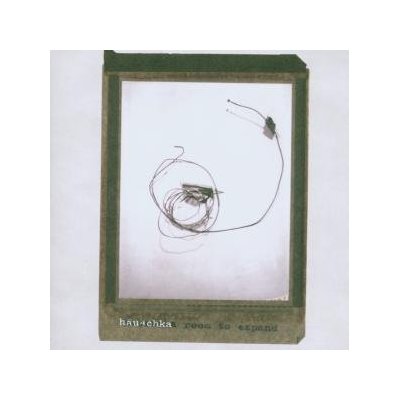Prepared piano isn’t a new concept. It was pioneered by John Cage who liked to bung all sorts of bolts, screws and rubber band into the piano mechanism to blunt the strings and introduce changes in pitch and tone. Volker Bertelmann takes those techniques and runs with them. Whilst Cage’s work was studied and intellectual, Bertelmann doesn’t let the method completely dominate the end product. The twelve pieces on Ferndorf range from Reich and Glass-like serialism, to neo-romantic piano more redolent of the Paris salons of the early twentieth century.
The cellos of Insa Schirmer and Donja Djember are almost ever-present on the album, giving even the most clinical pieces a warm melancholic glow. It leads to a far richer, and deeper sound than on any previous Hauschka record. “Eltern” is completely dominated by the cellos, with the piano offering little more than a rhythmic backdrop.
Mainly, though, the piano takes centre stage. The modifications work to a varied degree. In a few pieces, the clinking and rattling of loose objects are more of a distraction than anything else. The clattering bottle-caps on “Blue Bicycle” get in the way. The changes are more subtle in other tracks. The gentle “Morgenrot” merely has some blunted notes, and the gorgeous “Neuschnee” appears to be played completely straight. “Barfuss Durch Gras” is completely dominated by the clink and clatter of wires, brilliantly transforming the instrument until it sounds like a wonky clock mechanism.
Ultimately, no matter how fascinating the method, if the music itself was not interesting then Ferndorf would be a failure. That’s far from being the case – it’s stuffed full of ideas and melody. Wistful trombone adds colour to the nostalgic “Freibad”, whilst “Heimat” sounds like a silent movie score, and things end with the gentle nocturne of “Weeks of Rain”. If the rattling wires of the prepared piano can occasionally feel overdone, the album as a whole is an extremely satisfying listening experience with no pieces that seem like filler.
Tracks
1 Blue Bicycle
2 Morgenrot
3 Rode Null
4 Freibad
5 Barfuss durch Gras
6 Heimat
7 Nadelwald
8 Schönes Mädchen
9 Eltern
10 Alma
11 Neuschnee
12 Weeks of Rain
Website
www.fat-cat.co.uk



